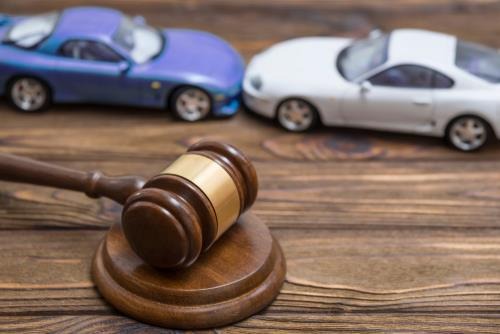Liability insurance is a type of coverage that protects you in the event that you are held legally responsible for causing harm or damage to someone else or their property. It is one of the most important types of insurance you can have, whether you're a business owner, a homeowner, or simply an individual navigating through everyday life. Without liability insurance, you risk being financially burdened by claims that could result in significant expenses or loss.

1. What Is Liability Insurance?
Liability insurance is designed to cover the costs associated with claims of injury, property damage, or negligence. This can include legal fees, medical bills, property repairs, or compensation for lost wages. There are various types of liability insurance, but the core function remains the same: to protect your assets and shield you from financial hardship if you are found responsible for an incident.
2. Why Is Liability Insurance Important?
-
Protects Your Assets: Without liability insurance, you could be personally liable for significant expenses resulting from an accident, injury, or damage caused by your actions. These costs may include medical expenses, legal fees, and compensation to the injured party, all of which could wipe out your savings or assets. Liability insurance ensures that these costs are covered, protecting your wealth and financial stability.
-
Legal Protection: Legal costs associated with lawsuits can quickly spiral out of control. Liability insurance helps cover these expenses, including attorney fees, court costs, and settlements. Even if you’re not at fault, defending yourself in court can be costly, and liability insurance helps mitigate these financial risks.
-
Peace of Mind: Having liability insurance provides peace of mind. Knowing that you are covered in the event of an accident or unintentional harm allows you to live and work with less worry. It ensures that you won’t have to bear the full financial burden if something goes wrong, whether it’s a minor accident or a more serious legal issue.
3. Types of Liability Insurance
There are several types of liability insurance, each tailored to different situations. Here are some of the most common types:
-
General Liability Insurance: Common for businesses, this coverage protects against a wide range of risks, including customer injuries, property damage, and advertising mistakes. It is often a requirement for businesses to operate safely and legally.
-
Professional Liability Insurance: Also known as errors and omissions insurance, this type covers professionals such as doctors, lawyers, and consultants in case a client claims negligence, mistakes, or subpar work that resulted in damage or loss.
-
Product Liability Insurance: This is relevant for manufacturers, distributors, and retailers. It covers claims related to injuries or damage caused by a product that was sold or produced.
-
Homeowners Liability Insurance: Homeowners insurance typically includes liability coverage in the event that someone is injured on your property or if you accidentally cause damage to someone else’s property.
-
Automobile Liability Insurance: If you are involved in a car accident and are found to be at fault, this insurance helps cover the costs of injuries to others and damage to their property.
4. Who Needs Liability Insurance?
-
Business Owners: Whether you run a small business or a large corporation, liability insurance is essential for protecting your company from claims, lawsuits, or customer injuries. Even if you take great precautions, accidents can happen, and liability insurance ensures that your business remains financially secure.
-
Homeowners and Renters: Homeowners and renters can also benefit from liability insurance, as it provides coverage if someone is injured on your property or if you unintentionally damage someone else's property. This coverage is often included in home or renters insurance policies.
-
Professionals and Consultants: If you provide professional services or advice, professional liability insurance (also known as errors and omissions insurance) is crucial. It protects you in case a client sues you for negligence, misrepresentation, or failure to perform services.
-
Individuals: Even if you don’t own a business, having personal liability insurance can protect you from unexpected events, such as an accident that causes injury or property damage. It ensures that you are financially prepared if an incident occurs that you are legally responsible for.
5. How to Choose the Right Liability Insurance
Choosing the right liability insurance requires careful consideration of your specific needs. Here are some factors to keep in mind:
-
Assess Your Risk Exposure: Consider the nature of your business, profession, or personal life. The more exposure you have to potential liability claims, the more comprehensive your coverage should be.
-
Review Policy Limits and Deductibles: Understand the coverage limits of the policy and whether they adequately cover potential claims. A higher deductible may lower your premium, but make sure you can afford the out-of-pocket costs if a claim arises.
-
Look for Comprehensive Coverage: Choose a policy that provides broad protection for a variety of potential liabilities. You may want to explore options that cover both bodily injury and property damage, as well as additional protections based on your specific situation.
-
Work with an Insurance Agent: If you’re unsure about the best liability insurance for your needs, consult with an insurance agent. They can help assess your risks, explain the available options, and guide you toward the right policy.
Final Thoughts
Liability insurance is essential for safeguarding your financial future and protecting your assets in the event of unforeseen incidents. Whether you're a business owner, a homeowner, or a professional, liability coverage provides peace of mind by helping you manage legal and financial risks. By choosing the right liability insurance, you can ensure that you’re protected from unexpected claims and avoid the potentially devastating consequences of being found responsible for damage or injury.





